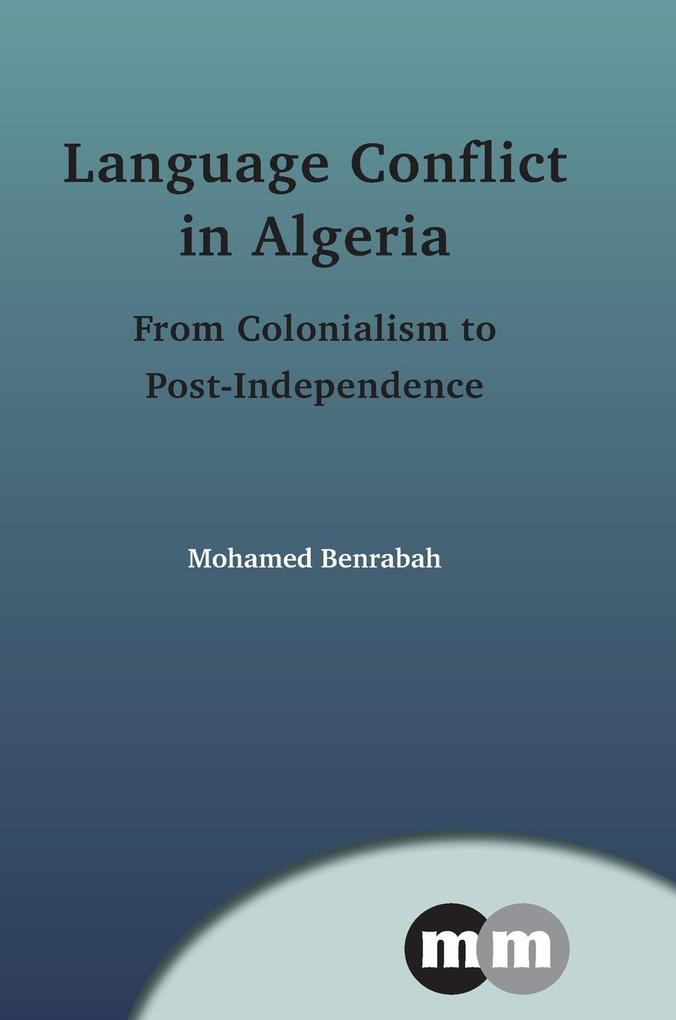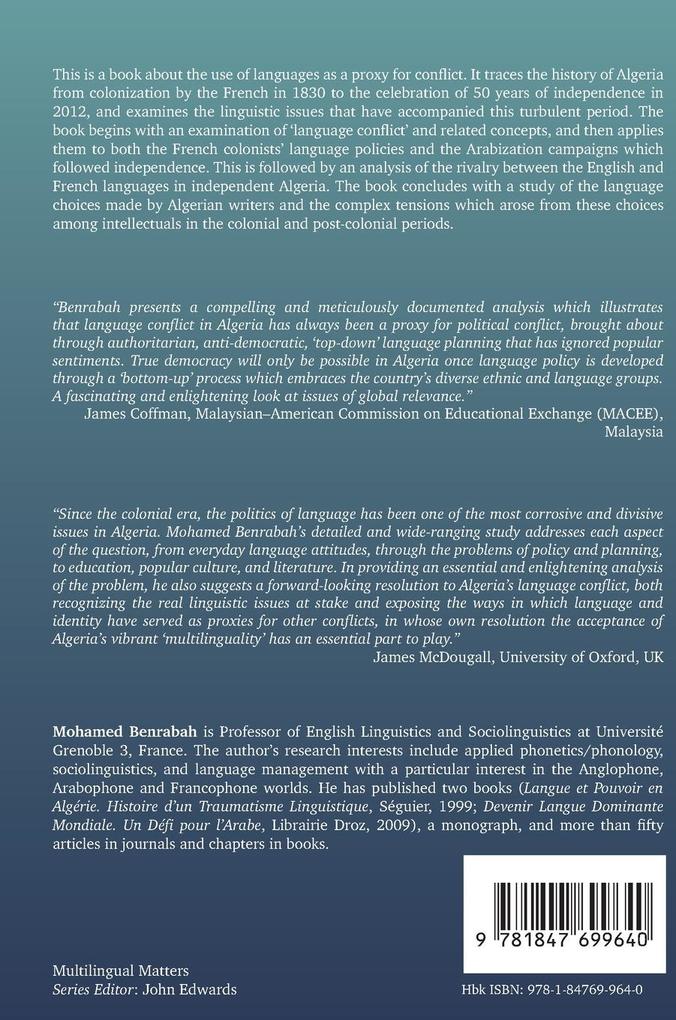
Zustellung: Fr, 18.07. - Di, 22.07.
Versand in 7 Tagen
VersandkostenfreiBestellen & in Filiale abholen:
This book presents a detailed survey of language attitudes, conflicts and policies over the period from 1830, when the French occupied Algeria, up to 2012, the year this country celebrated its 50th anniversary of independence. It traces the evolution of language planning policies and reactions to them in both the colonial and post-colonial eras.
Inhaltsverzeichnis
Prologue: Two cultural wars in 50 years
Chapter 1: Circumnavigating a term: "Language conflict" and related concepts
Chapter 2: Frenchification: Annihilating indigenous languages
Chapter 3: Arabization: At war with diversity
Chapter 4: Geopolitics and language rivalry: French versus English
Chapter 5: Writers and language as a battlefield: "authenticity" versus "hybridity" Epilogue: The language question as a "lightning rod"
Chapter 1: Circumnavigating a term: "Language conflict" and related concepts
Chapter 2: Frenchification: Annihilating indigenous languages
Chapter 3: Arabization: At war with diversity
Chapter 4: Geopolitics and language rivalry: French versus English
Chapter 5: Writers and language as a battlefield: "authenticity" versus "hybridity" Epilogue: The language question as a "lightning rod"
Mehr aus dieser Reihe
Produktdetails
Erscheinungsdatum
01. Mai 2013
Sprache
englisch
Seitenanzahl
214
Reihe
Multilingual Matters, 154
Autor/Autorin
Mohamed Benrabah
Verlag/Hersteller
Produktart
gebunden
Gewicht
393 g
Größe (L/B/H)
216/153/15 mm
ISBN
9781847699640
Entdecken Sie mehr
Pressestimmen
Benrabah presents a compelling and meticulously documented analysis which illustrates that language conflict in Algeria has always been a proxy for political conflict, brought about through authoritarian, anti-democratic, 'top-down' language planning that has ignored popular sentiments. True democracy will only be possible in Algeria once language policy is developed through a 'bottom-up' process which embraces the country's diverse ethnic and language groups. A fascinating and enlightening look at issues of global relevance. James Coffman, Malaysian-American Commission on Educational Exchange (MACEE), Malaysia Since the colonial era, the politics of language has been one of the most corrosive and divisive issues in Algeria. Mohamed Benrabah's detailed and wide-ranging study addresses each aspect of the question, from everyday language attitudes, through the problems of policy and planning, to education, popular culture, and literature. In providing an essential and enlightening analysis of the problem, he also suggests a forward-looking resolution to Algeria's language conflict, both recognizing the real linguistic issues at stake and exposing the ways in which language and identity have served as proxies for other conflicts, in whose own resolution the acceptance of Algeria's vibrant 'multilinguality' has an essential part to play. James McDougall, University of Oxford, UK
Bewertungen
0 Bewertungen
Es wurden noch keine Bewertungen abgegeben. Schreiben Sie die erste Bewertung zu "Language Conflict in Algeria" und helfen Sie damit anderen bei der Kaufentscheidung.


































